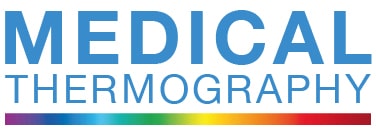Stress and Breast Cancer
 In the list of factors that increase the risk of breast cancer, stress features strongly, but because it’s a psychological condition it is much harder to evaluate accurately. Hopefully, this post will broaden the understanding of stress in relation to breast cancer.
In the list of factors that increase the risk of breast cancer, stress features strongly, but because it’s a psychological condition it is much harder to evaluate accurately. Hopefully, this post will broaden the understanding of stress in relation to breast cancer.
What is stress?
Stress can be defined as a mental or emotional state resulting from adverse or demanding circumstances. Under threatening circumstances, real or perceived, the body is designed to trigger a hormonal response which in turn activates a physical response ie. to act appropriately to avoid the threat. One of the hormones released during this process is Cortisol, which causes cells to release glucose, increasing energy levels so the body can respond. But, Cortisol also slows non-essential functions like the immune system – and this suppresses the immune system’s ability to defend against cancer.
Types of Stress
Stress is generally divided into 2 types – Acute stress (short-lived) or Chronic stress (repetitive or recurring over an extended period of time). Acute stress might occur due to a one-off big life event like the loss of spouse, child or parent, or loss of job etc. Chronic stress might occur from work pressure, long working hours, caregiving, daily pressures in life etc.
Stress and Breast Cancer
Epidemiological studies (the study of associations between health and population groups using observational and experimental data) show an association between Cortisol and breast cancer, possibly because Cortisol plays a natural role in breast development and function. It is thought that because of this it may sensitise mammary tissues to changes in Cortisol ‘signalling’ during times of stress.
Acute stress (life events) shows a stronger association with all cancers – this may be because the changes in the Cortisol patterns may be more severe during shocking life events. It may also be attributed to the total devastation to people’s lives caused by single events, causing loss of sleep, a change of diet away from healthy foods, a lack of exercise – all of these factors resulting in an increase in susceptibility to cancer.
Stress and Breast Cancer studies
Some studies do show a stronger association between stressful life events and breast cancer incidence, than chronic stress such as work-related stress. But, historically, these studies have extracted data retrospectively by asking patients to recollect their exposure to stress in the years preceding their diagnosis. Some of these studies have found no association at all between stress and breast cancer.
However, a 25-year study involving nearly 1500 healthy women used a different approach. The women were randomly chosen to record stressful events in their lives. The results were surprising: ‘Women reporting an experience of stress during the 5 years preceding the first examination displayed a two-fold rate of breast cancer compared with women reporting no stress’.
